
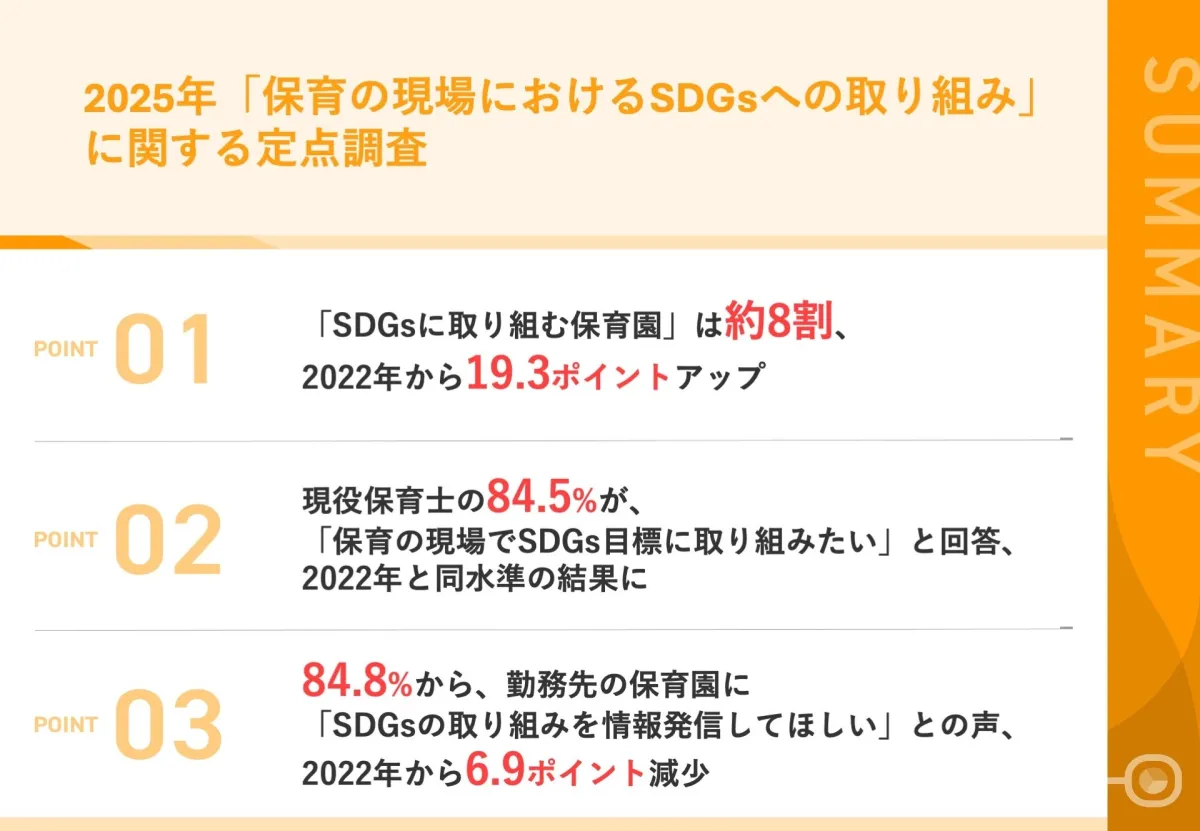
Rising Commitment: Almost 80% of Nursery Schools Actively Work on SDGs by 2025
Increasing Focus on SDGs in Nursery Education
A recent survey conducted by Asuka Corporation, which oversees a nursery research project named "Konnect Labo," shows a significant growth in commitment towards the Sustainable Development Goals (SDGs) within nursery schools in Japan. The study, which involved 104 active nursery teachers, indicates that around 80% of them are now working towards integrating SDGs into their institutions by 2025. This represents a notable increase of 19.3 percentage points compared to the findings from 2022.
Survey Highlights
The survey aimed to explore the current state of SDGs adoption in nursery environments, comparing the trends from previous years. Here are the key findings:
1. Commitment to SDGs: 75.9% of nursery teachers confirmed their institutions actively engage in initiatives related to SDGs, such as community welfare and environmental preservation. This marks a significant rise from 56.6% reported in 2022.
2. Desire for Engagement: Among those surveyed, 84.5% expressed a desire to work on SDGs initiatives in the workplace, maintaining a consistent level of ambition compared to the previous year.
3. Information Dissemination: While 84.8% voiced the need for their nurseries to broadcast their efforts regarding SDGs has slightly decreased by 6.9 points since 2022, it still indicates a strong interest in transparency and community involvement.
Breakdown of Responses
When asked whether their nursery schools provide educational opportunities regarding SDGs, 69.6% affirmed they do. This is an improvement of 9.6 points over the previous year’s results, reflecting a growing commitment to professional development in this essential area.
Specific SDG Initiatives Implemented
Responses to open-ended questions regarding the actions taken toward SDGs revealed a wealth of creative practices:
- - Many institutions are committing to environmental action by decreasing carbon emissions and implementing biomass energy projects.
- - Activities focusing on gender equality ensure male staff operate on equal ground with their female colleagues.
- - Moreover, hands-on learning about waste management, such as recycling, composting, and community clean-ups, is increasingly integrated into daily activities.
Priorities for Future Action
In terms of which SDGs they would like to focus on, two main objectives stood out:
- - Health and Well-being: 39.8% indicated their priority is to ensure people’s health and welfare.
- - Quality Education for All: 38.6% expressed a desire to promote access to quality education.
Educating the Next Generation
Approximately 90% of respondents believe nurseries should engage in activities concerning environmental issues and community contributions. This shows a growing awareness that adults must model responsible behavior for young learners. Teachers highlighted that instilling SDG values from an early age can significantly influence children's future actions and behaviors regarding sustainability.
The survey also showed that a majority—around 77.9%—desire to be employed at organizations that pursue SDGs, emphasizing a growing trend among educators to align their values with those of their workplace. Reasons for this aspiration include a recognition that organizational efforts can amplify individual actions and a shared commitment to social contribution and role modeling for children.
Conclusion
The insights derived from this survey underscore a pivotal shift within Japan's nursery education sector. The increased commitment to SDGs not only fosters a better understanding among children of social and environmental responsibilities but also enhances the appeal and value of nursery institutions. This holistic approach enriches the educational landscape, supporting a sustainable future while also bolstering job satisfaction for educators.
For further details and to download the complete research, please visit Konnect Labo.
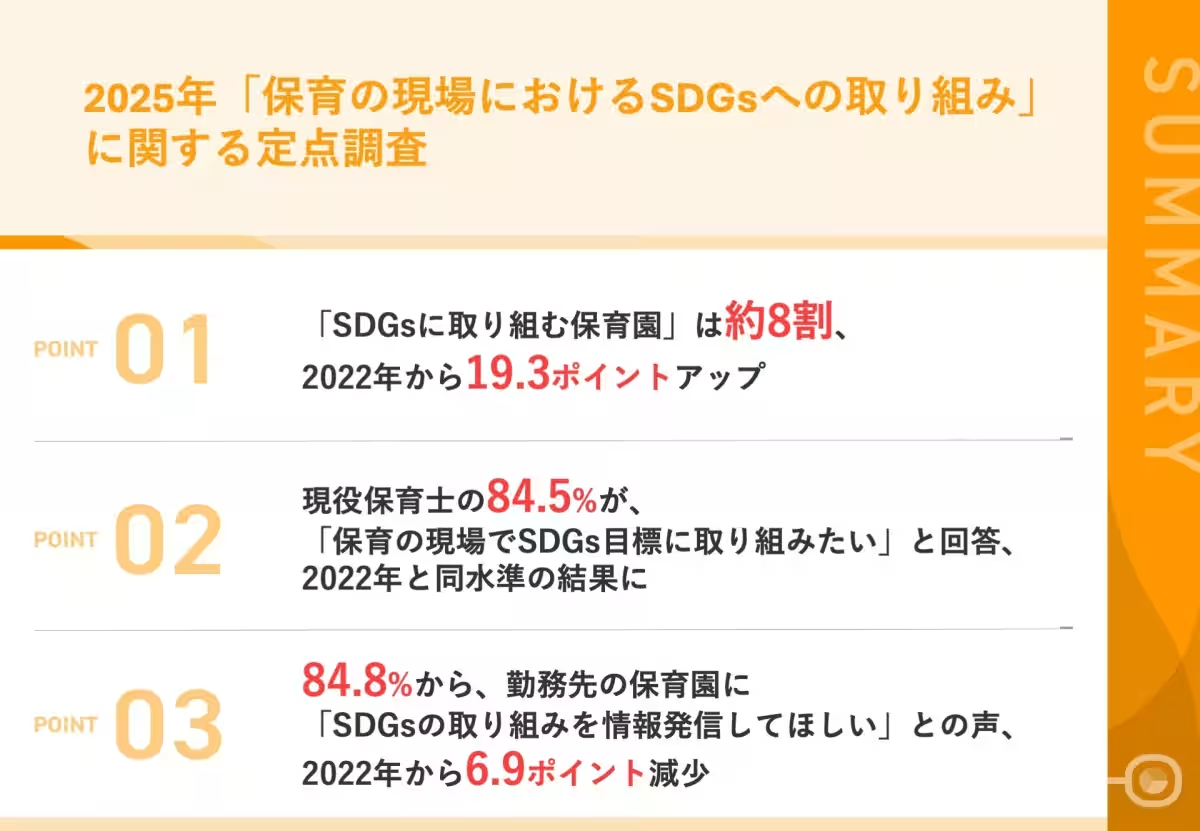
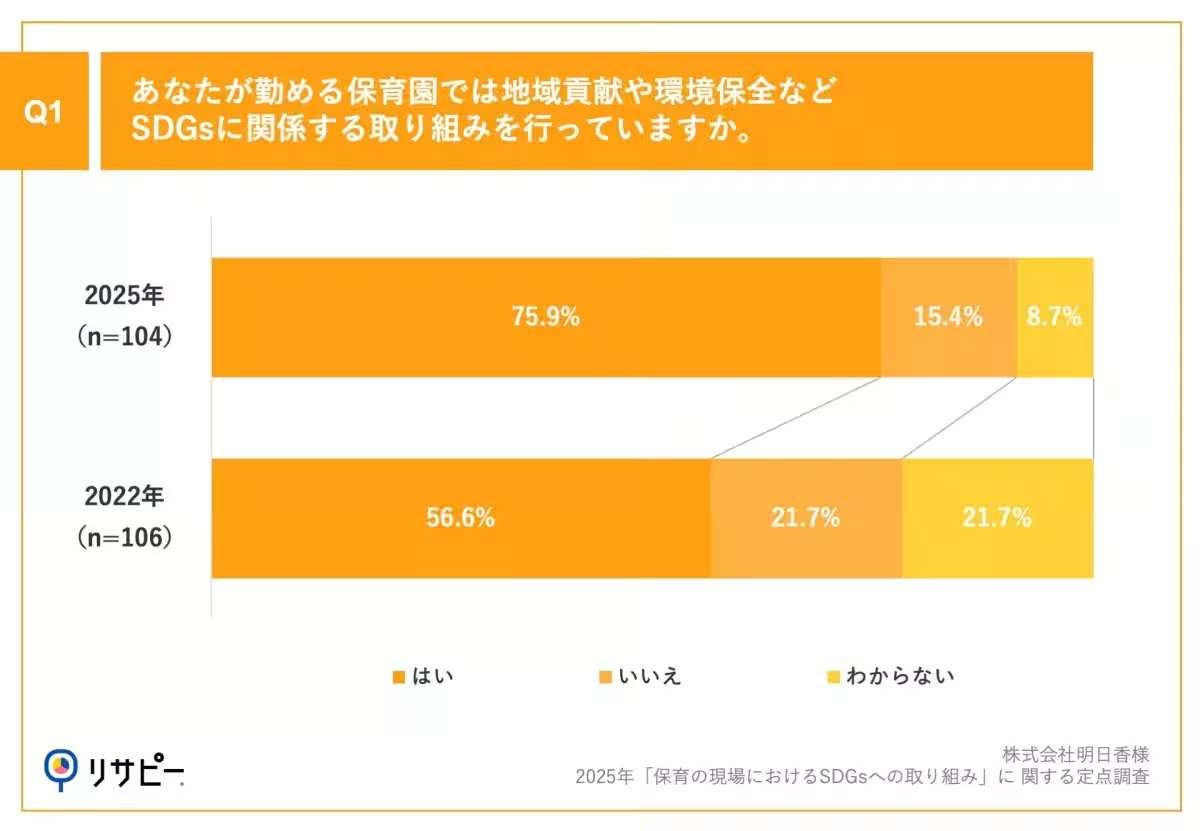
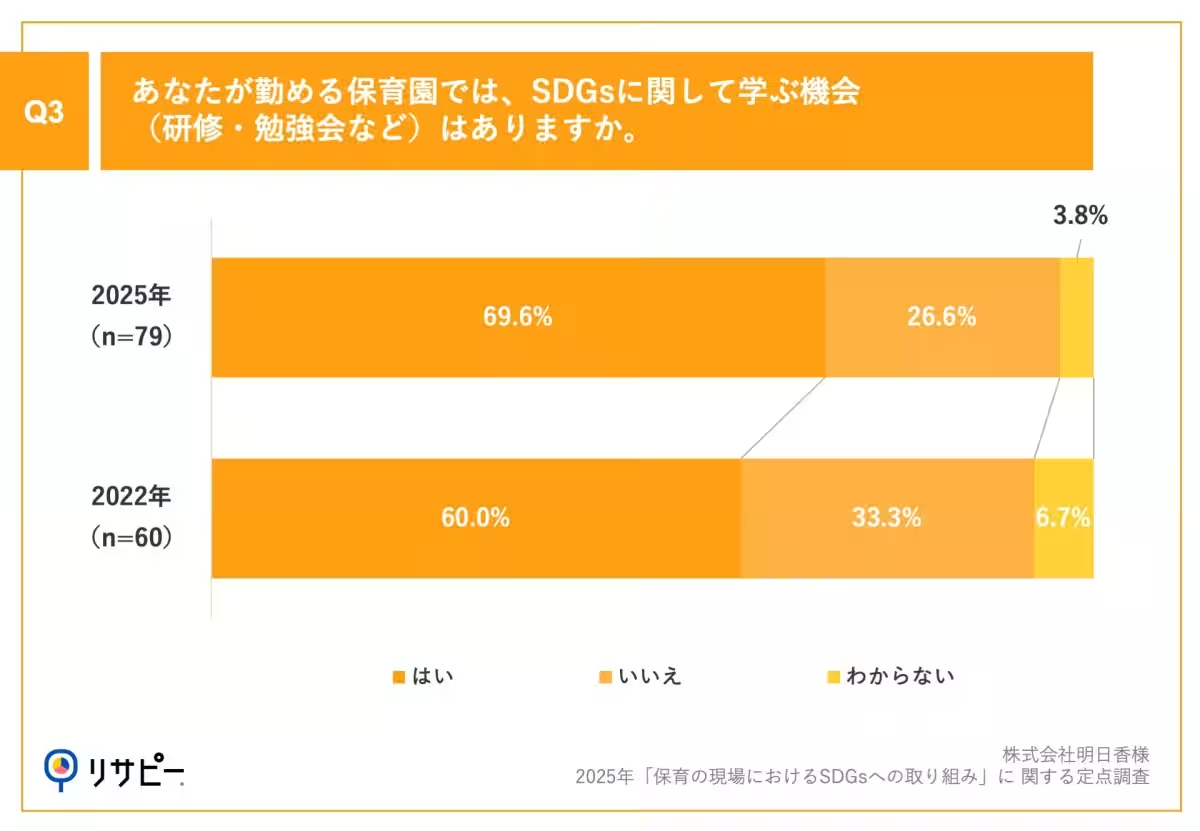
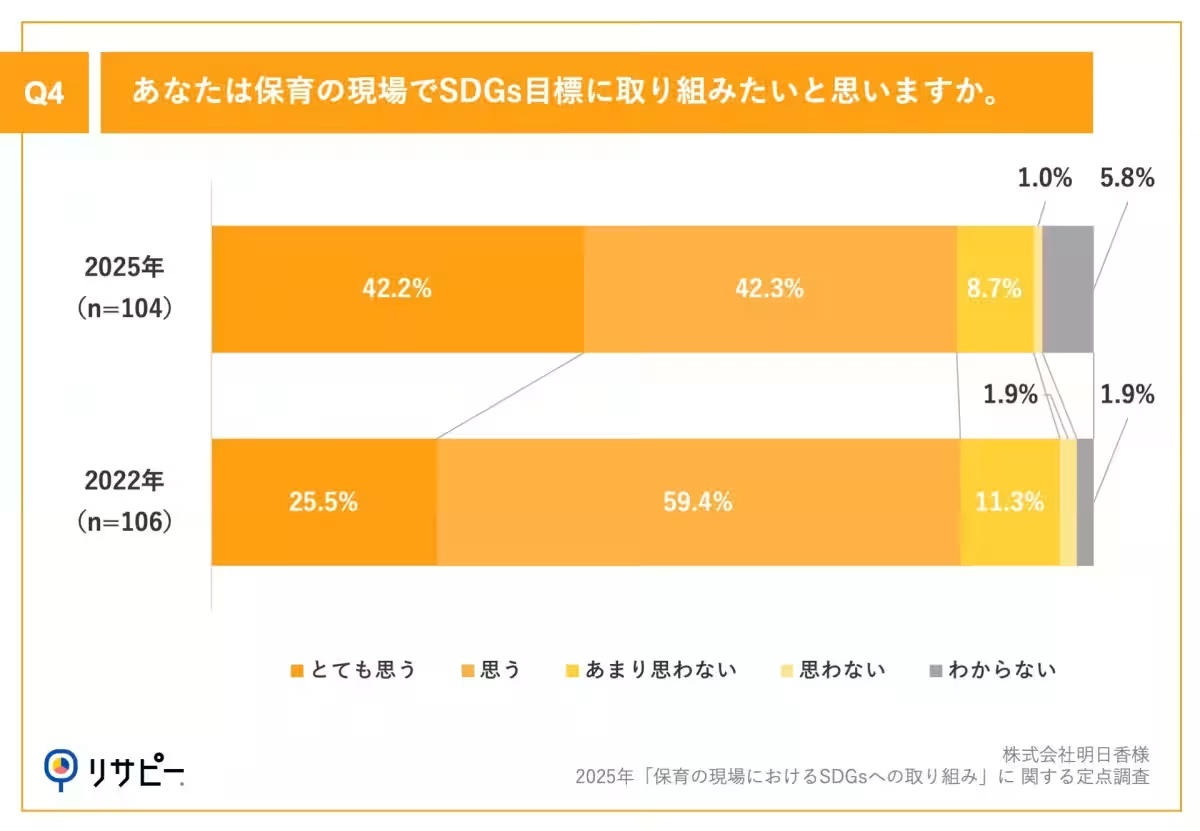
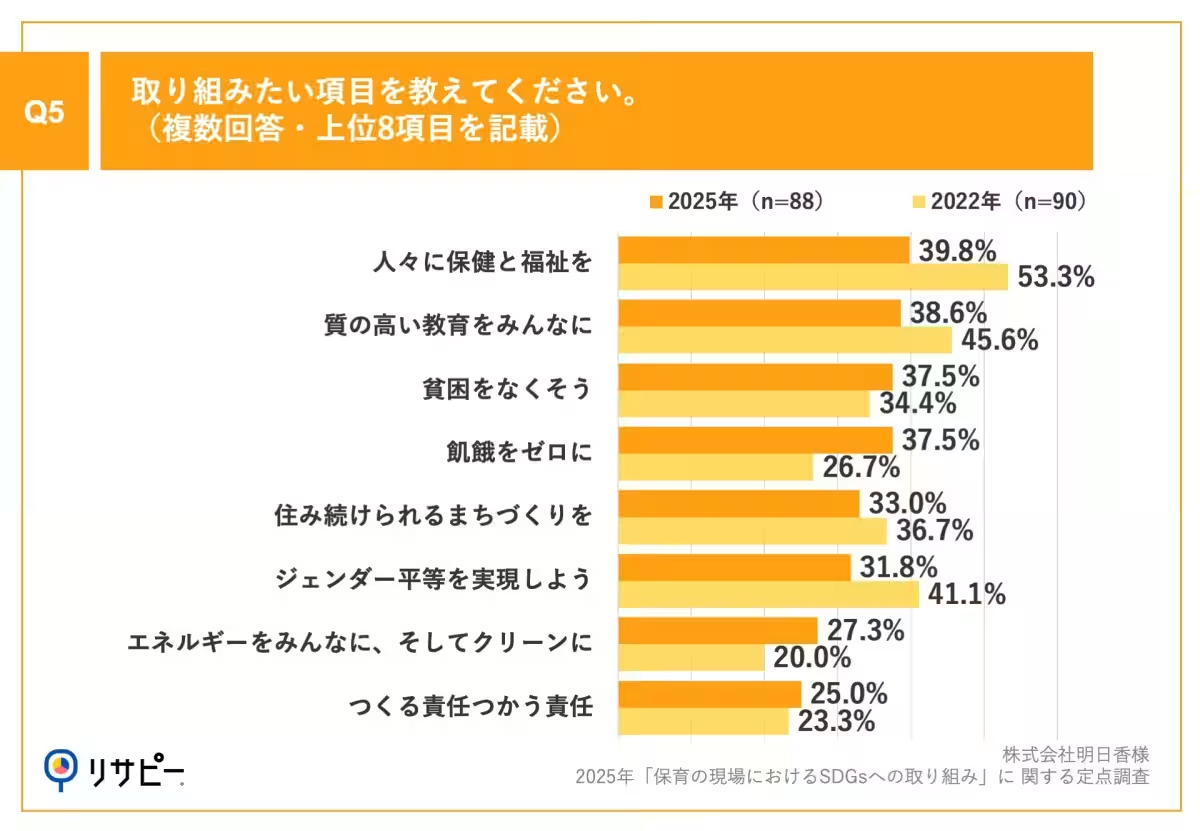
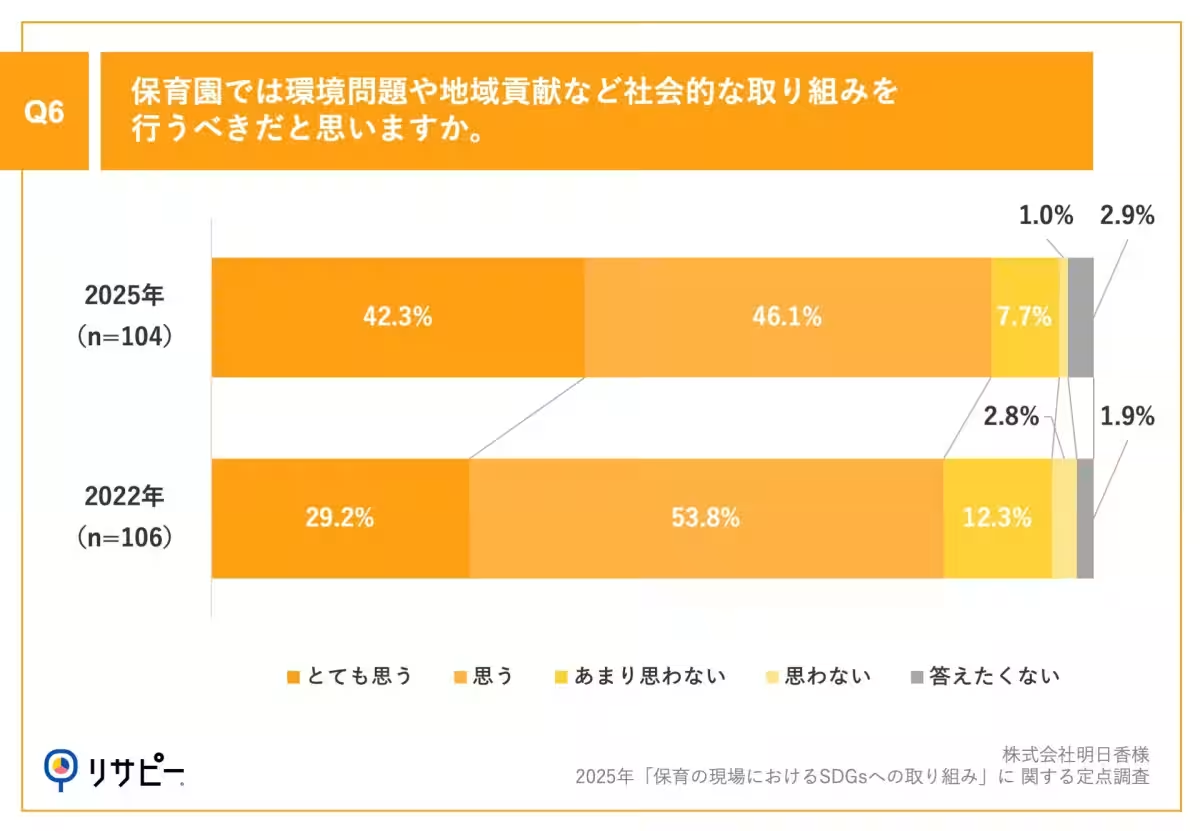
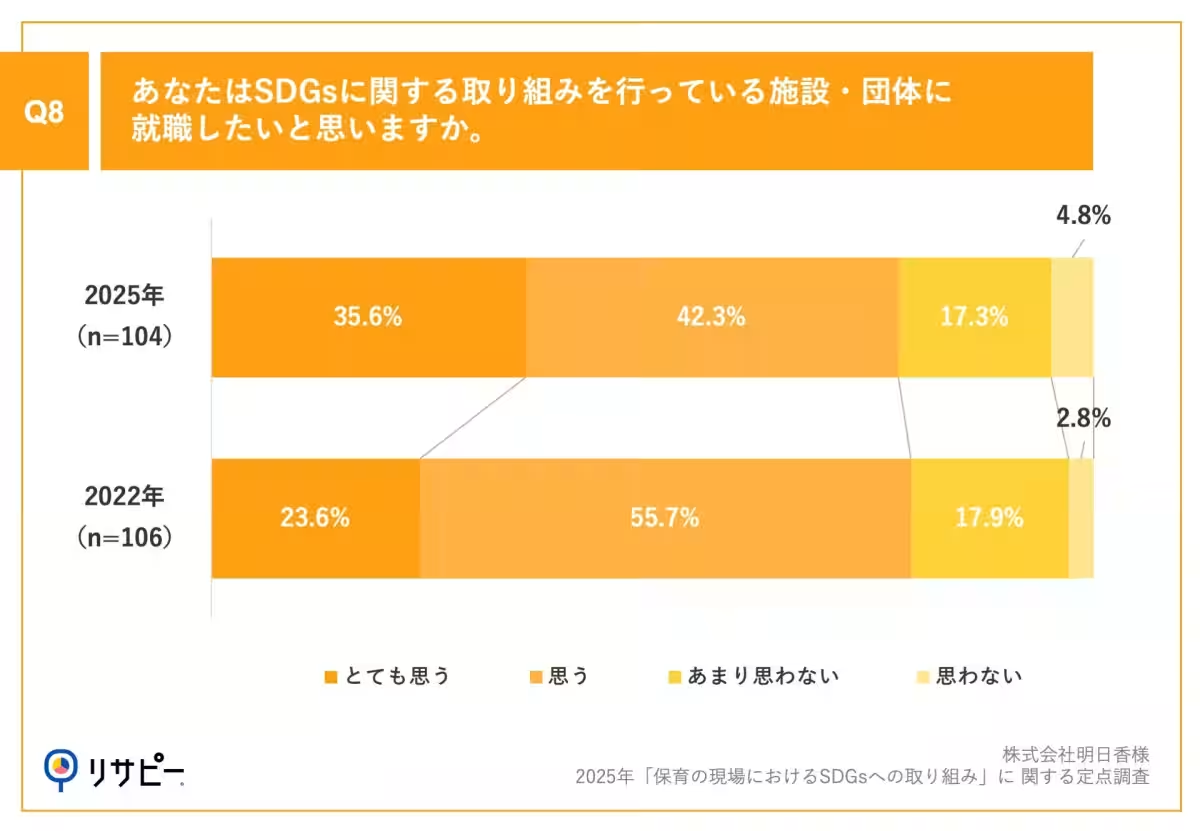
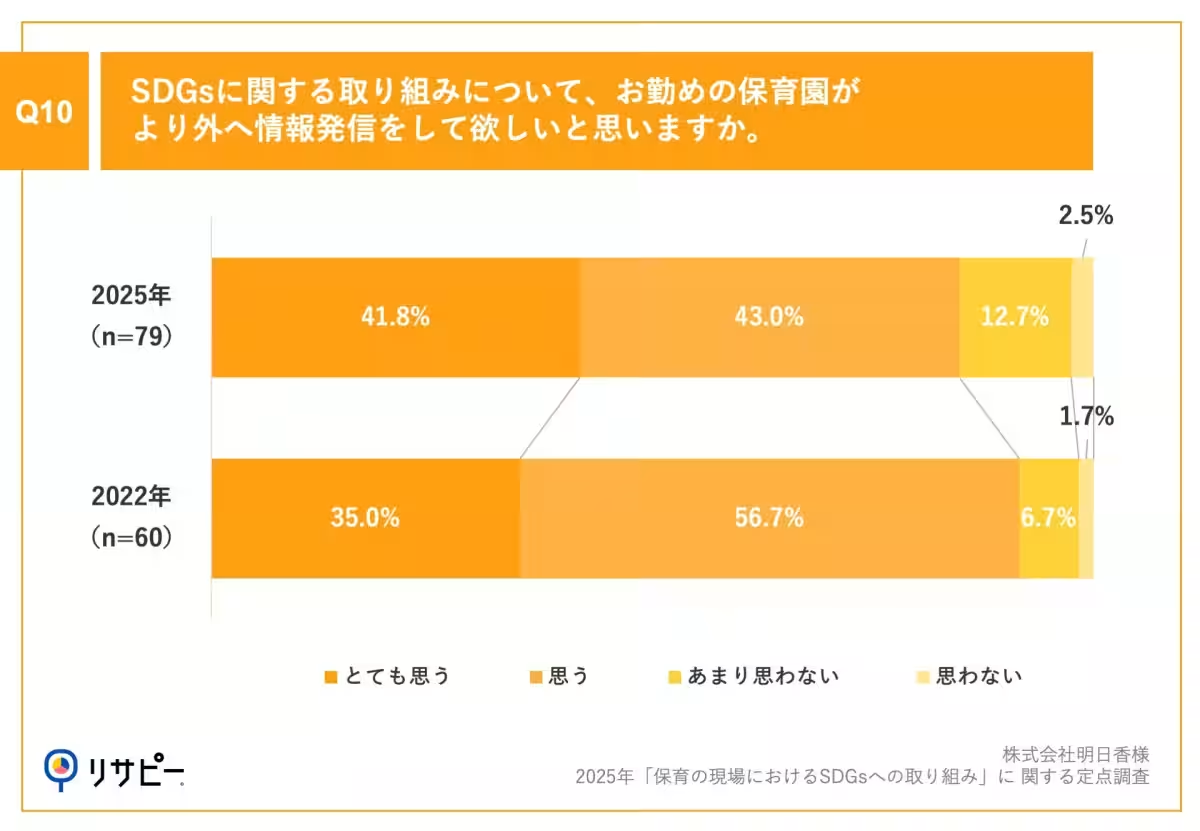

Topics People & Culture)










【About Using Articles】
You can freely use the title and article content by linking to the page where the article is posted.
※ Images cannot be used.
【About Links】
Links are free to use.